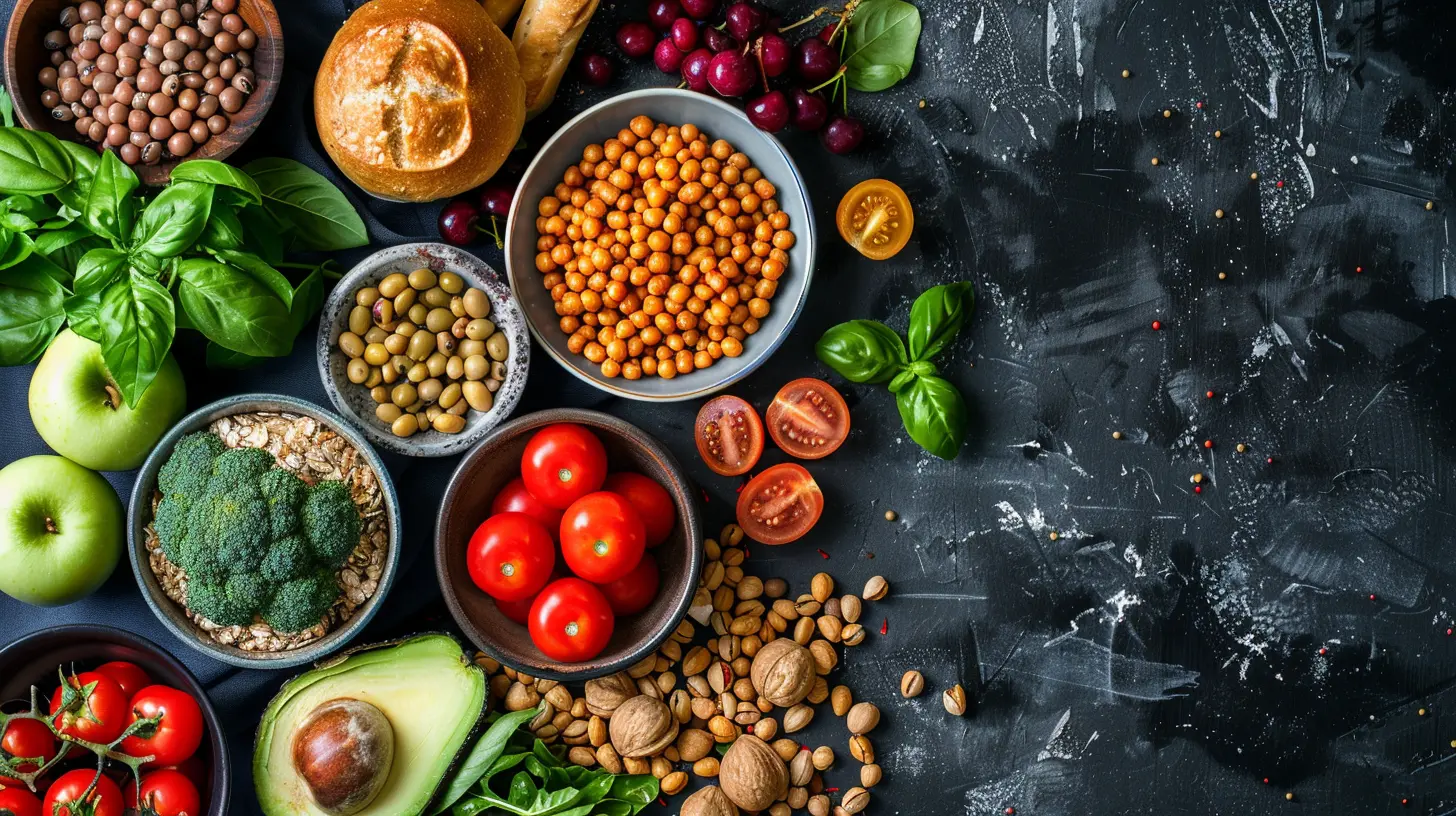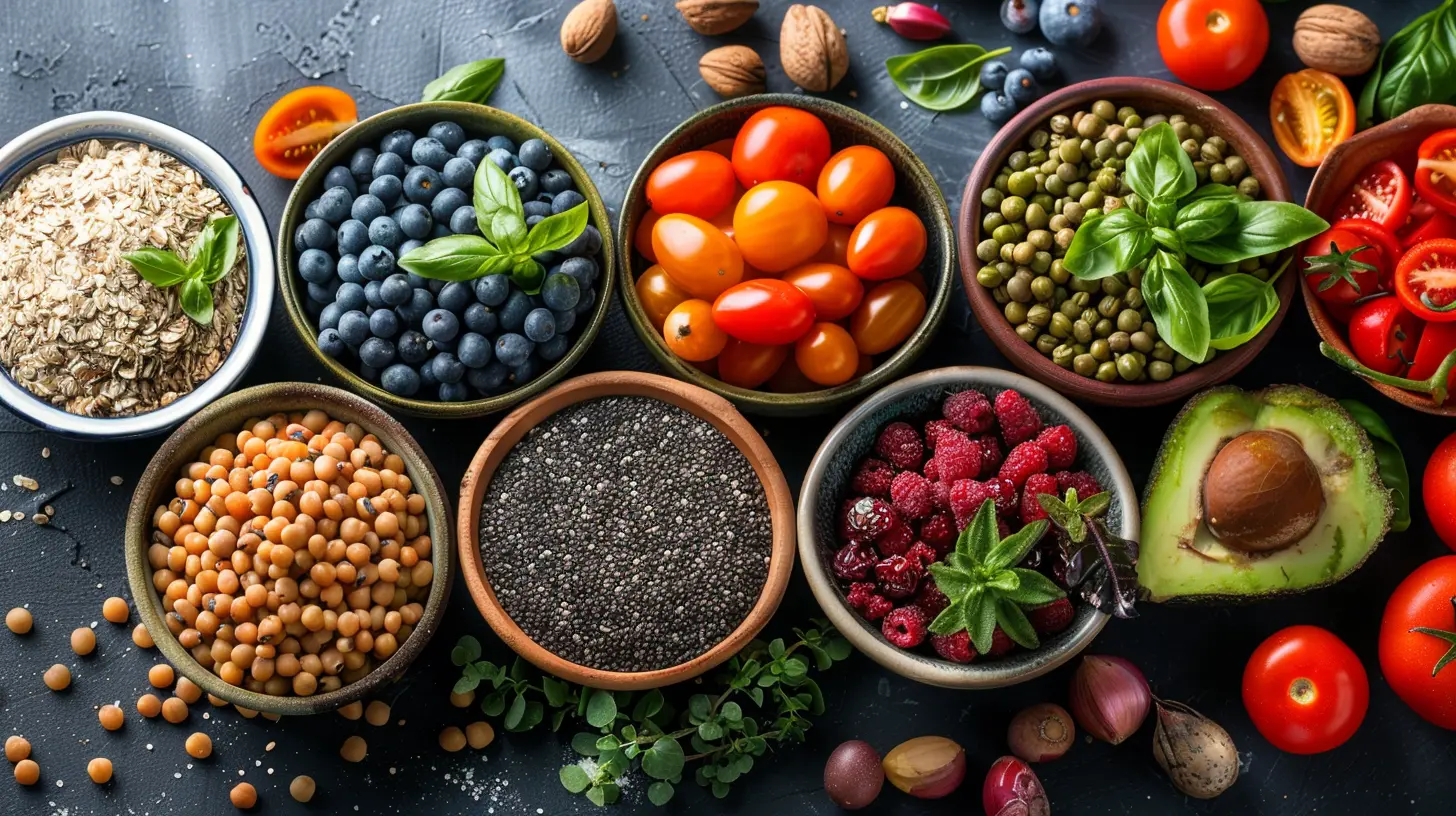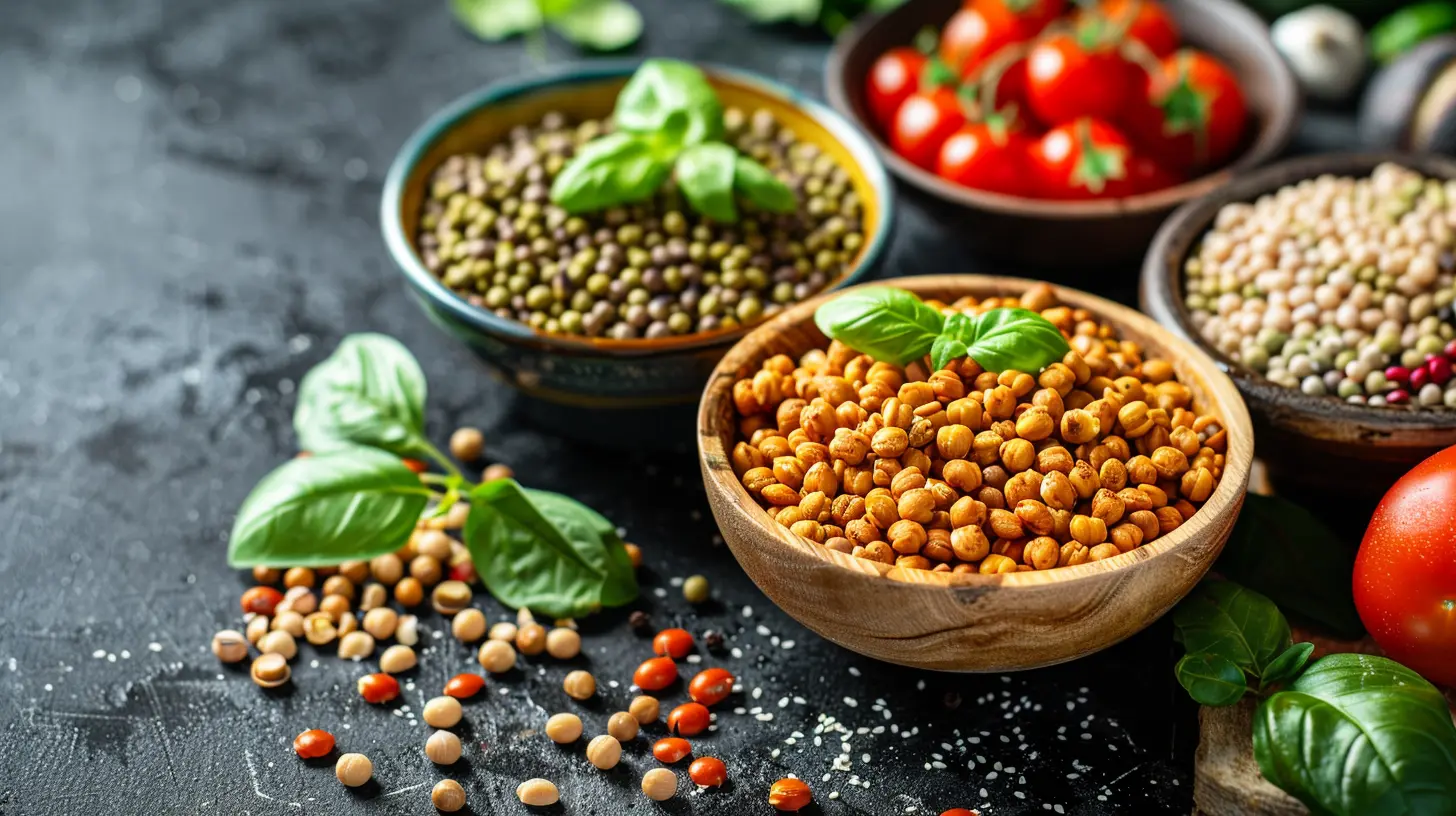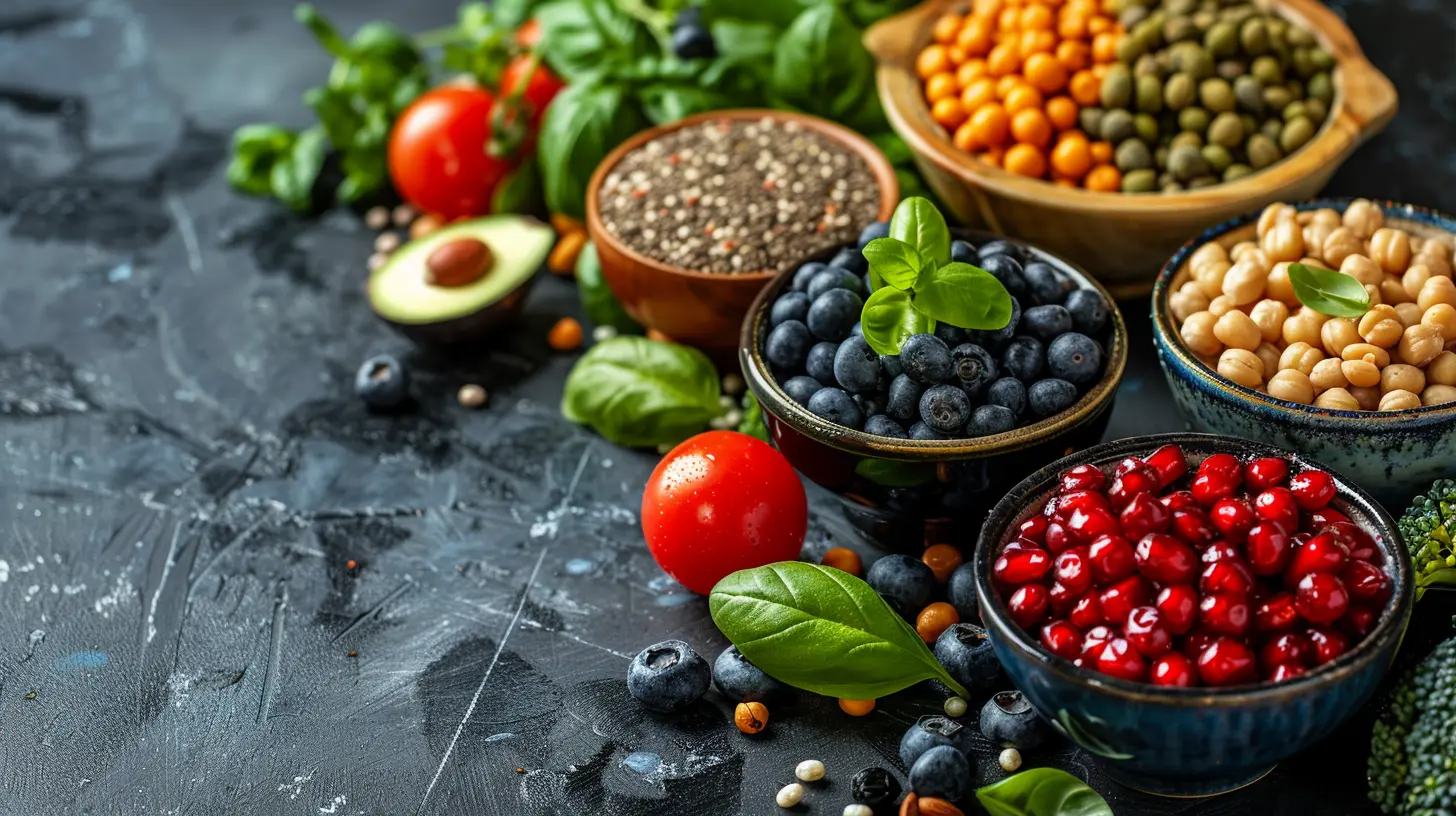Plant-Based Diets for People with Food Allergies
4 September 2025
Food allergies can make eating a real challenge, especially when you’re trying to maintain a balanced diet. But what if I told you that a plant-based diet could be a game-changer? Whether you're allergic to dairy, eggs, nuts, or wheat, a well-planned plant-based lifestyle can help you get all the nutrients you need while avoiding allergens.
This guide will break down everything you need to know about plant-based diets for people with food allergies—what to eat, what to watch out for, and how to make sure you're getting the right nutrition. 
Why Consider a Plant-Based Diet for Food Allergies?
If you’ve ever felt frustrated trying to find allergen-free foods, a plant-based diet might be the answer. Here's why:- It eliminates common allergens. Many food allergies stem from animal-based products like dairy and eggs. Avoiding them automatically reduces your risk of allergic reactions.
- It promotes gut health. A diet rich in plant-based foods supports a healthy gut microbiome, which may help manage food sensitivities.
- It’s anti-inflammatory. Many plant-based foods are packed with antioxidants and anti-inflammatory properties, which can help reduce allergic responses and improve overall health. 
Common Food Allergens & Their Plant-Based Alternatives
Let's go over some of the most common food allergens and how you can replace them while sticking to a plant-based lifestyle.1. Dairy Allergies
Dairy is one of the most common allergens, but there are plenty of plant-based alternatives:- Milk substitutes: Almond milk (if you're not allergic to nuts), oat milk, coconut milk, soy milk, rice milk, and hemp milk.
- Cheese alternatives: Nutritional yeast (a great cheese-flavored seasoning), cashew cheese (if nut allergies aren't a concern), or store-bought vegan cheese made from coconut or potato starch.
- Yogurt replacements: Coconut yogurt, soy yogurt, or oat-based yogurt.
Pro Tip: Look for fortified options that contain calcium and vitamin D, especially if you're avoiding dairy.
2. Egg Allergies
Eggs are commonly used in baking and cooking, but plant-based alternatives work just as well.- For baking: Flaxseed or chia seed "eggs" (mix 1 tablespoon of ground flax/chia seeds with 3 tablespoons of water and let it sit for 5 minutes).
- For scrambles: Tofu or chickpea flour mixed with turmeric and seasonings.
- For binding in recipes: Mashed bananas, applesauce, or silken tofu.
3. Nut Allergies
Many plant-based diets rely on nuts for protein and healthy fats, but there are plenty of nut-free options:- Nut-free butters: Sunflower seed butter, pumpkin seed butter, soy butter, and tahini (sesame seed paste).
- Nut-free milk options: Oat, rice, soy, coconut, and hemp milk.
- Nut-free protein sources: Beans, lentils, quinoa, chickpeas, hemp seeds, and pumpkin seeds.
Watch out! Many store-bought vegan products contain nuts, so always check the labels.
4. Soy Allergies
Soy is often used in plant-based products like tofu and soy milk, but if you're allergic, no worries—there are great alternatives!- Soy-free protein sources: Lentils, chickpeas, quinoa, beans, and hemp seeds.
- Soy-free meat substitutes: Jackfruit, mushrooms, lentil-based burgers, or seitan (if you're not allergic to gluten).
- Soy-free milk options: Almond, oat, rice, coconut, or hemp milk.
Quick Tip: Some plant-based processed foods contain hidden soy (like soy lecithin), so always read ingredient lists carefully!
5. Gluten Allergies (Celiac Disease or Sensitivity)
Many whole grains contain gluten, but there’s no shortage of gluten-free plant-based options:- Gluten-free grains: Quinoa, rice, millet, buckwheat, amaranth, and sorghum.
- Gluten-free pasta: Brown rice pasta, quinoa pasta, or chickpea pasta.
- Gluten-free bread alternatives: Lettuce wraps, collard greens, or gluten-free bread made from almond, coconut, or oat flour. 
How to Ensure Proper Nutrition on a Plant-Based, Allergen-Free Diet
When you eliminate multiple food groups due to allergens, it's important to make sure you're still getting adequate nutrition. Here’s how to do it right:1. Protein
Plant-based diets are often criticized for lacking protein, but that’s a myth! Great allergen-free protein sources include:- Lentils
- Chickpeas
- Quinoa
- Hemp seeds
- Pumpkin seeds
- Peas
2. Calcium & Vitamin D
Without dairy in your diet, it's crucial to get calcium from other sources:- Leafy greens (kale, bok choy)
- Fortified plant-based milks
- Chia seeds
- Tahini
Pair these with vitamin D from sunlight or a plant-based supplement to help calcium absorption.
3. Iron
Iron from plant sources (non-heme iron) isn’t absorbed as easily as iron from animal products. Boost absorption by eating iron-rich foods with vitamin C:- Iron-rich foods: Lentils, spinach, quinoa, pumpkin seeds
- Vitamin C sources: Bell peppers, oranges, kiwi, strawberries
4. Healthy Fats
If you can’t eat nuts, get your healthy fats from:- Avocados
- Flaxseeds
- Chia seeds
- Olive oil
- Coconut
5. Vitamin B12
Vitamin B12 is mostly found in animal products, so if you're on a fully plant-based diet, you’ll likely need a supplement or fortified foods like:- Fortified plant milks
- Nutritional yeast
- B12 supplements 
Meal Ideas for an Allergen-Free, Plant-Based Diet
Need some inspiration? Here are a few simple meal ideas:Breakfast
- Smoothie with banana, spinach, oat milk, chia seeds, and berries- Chia pudding with coconut milk and fresh fruit
- Oatmeal with pumpkin seeds and cinnamon
Lunch
- Quinoa and chickpea salad with lemon dressing- Lentil soup with gluten-free bread
- Collard green wraps filled with hummus, veggies, and avocado
Dinner
- Stir-fried veggies with brown rice and tofu (or lentils for a soy-free option)- Sweet potato and black bean tacos with avocado
- Vegan chili made with beans, tomatoes, and quinoa
Snacks
- Roasted chickpeas- Fresh fruit with sunflower butter
- Rice cakes with hummus
Final Thoughts
Going plant-based when you have food allergies can seem a little overwhelming at first, but with a little creativity, it’s absolutely doable! Focus on whole, unprocessed foods, find substitutes that work for you, and always read ingredient labels carefully. Your body will thank you for it!If you’re making this shift, take it step by step, and remember—there's no one-size-fits-all when it comes to diets. Listen to your body, find what works, and enjoy the journey to healthier, allergen-free eating!
all images in this post were generated using AI tools
Category:
Food AllergiesAuthor:

Laurie Barlow
Discussion
rate this article
1 comments
Xylo Hardy
Who knew plants could be the ultimate allergy allies? Think of veggies as your culinary superheroes, swooping in to save your taste buds while dodging those pesky allergens! 🌱🥦 Let’s turn those food foes into plant-powered pals and make every bite a delicious adventure!
September 26, 2025 at 3:02 PM

Laurie Barlow
Absolutely! Embracing plant-based foods can transform meals into allergen-friendly delights, making healthy eating both safe and tasty. 🌿🥗


